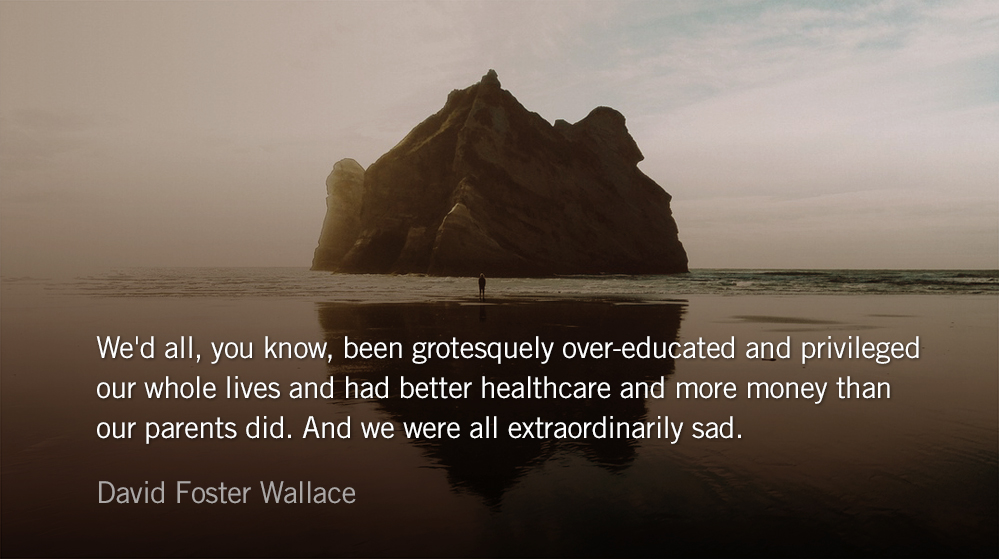All of man’s labor is for nothing more than to fill his stomach—yet his appetite is never satisfied! — Ecclesiastes 6.7
Though he had been without food for 40 days, Jesus refused to turn stones to bread. “Man shall not live by bread alone, but by every word that comes from the mouth of God.” The offer had been made: quench your material longings by your own ability. Jesus’ reply? In the end, that wouldn’t satisfy my deepest longings.
We spend our days, the writer of Ecclesiastes says, trying to satisfy our appetites for more. Money, power, control, sex, food, status—every longing promises to be satisfied by the next acquisition—every longing proves insatiable.
The Divine Comedy chronicles penalties for each earthly sin as acts of contrapasso—to suffer the opposite. Rather than divine retribution, every circle of Dante’s Inferno is “the fulfillment of a destiny freely chosen by each soul during his or her life,” explains scholar Peter Brand.
The gluttons, Dante writes, writhe in a cesspool of waste from their endless consumption. As Virgil guides Dante he explains the gluttons’ damnation; “What these shades could not satisfy in life, in death, they shall be denied for eternity.”
Where Dante imagined the result of chasing earthly appetites to their end, modern writers like David Foster Wallace chronicled its present cultural symptoms. Upon his death in 2008 the New York Times celebrated Wallace’s writings as “a series of strobe-lit portraits of a millennial America overdosing on the drugs of entertainment and self-gratification.”
A recently republished interview reveals Wallace’s candid reflections on one of his most successful books:
A lot of the impetus for writing “Infinite Jest” was just the fact that I was about 30 and I had a lot of friends who were about 30, and we’d all, you know, been grotesquely over-educated and privileged our whole lives and had better healthcare and more money than our parents did. And we were all extraordinarily sad.
I think it has something to do with being raised in an era when really the ultimate value seems to be… a life where you basically experience as much pleasure as possible, which ends up being sort of empty and low-calorie.
Greed is timeless, our appetites limitless. Yet we are not left alone. Jesus was strong enough to defeat broken appetites in the desert and loving enough to forgive us for the times we have fallen in the wilderness of our own desires. “On Christ the solid rock I stand,” penned Edward Mote in 1834, “All other ground is sinking sand.”
Today’s Reading
Ecclesiastes 6 (Listen – 1:44)
2 Timothy 2 (Listen – 3:17)






